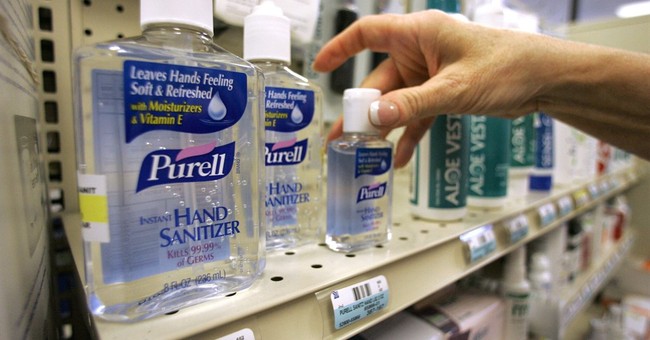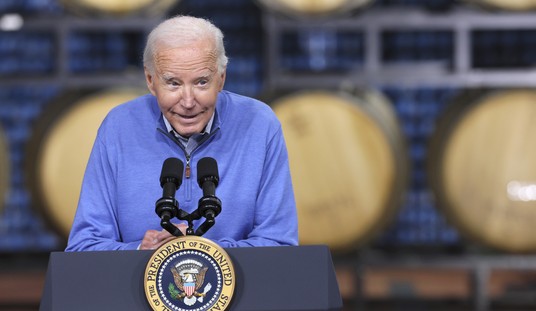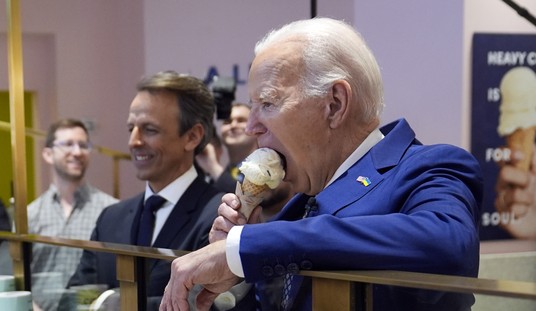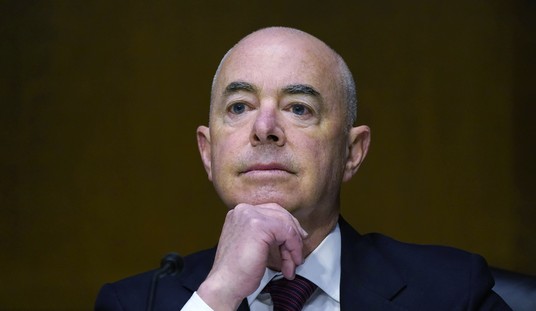
FILE – This Wednesday, April 29, 2009, file photo, shows hand sanitizer on a shelf at a pharmacy in Plano, Texas. Federal health officials want to know whether hand sanitizers used by millions of Americans are as effective at fighting germs as manufacturers claim, and whether there are any health risks to their use. (AP Photo/Donna McWilliam, File)
Unfortunately, the United States leads the world in COVID-19 cases, partially due to government failure and partially due to circumstances beyond the control of government. Fortunately, the private sector has stepped up to the plate by increasing production of ventilators, face masks, and much-needed hand sanitizers. In fact, more than 575 distilleries have committed to converting their operations from making alcoholic beverages to producing alcohol-based hand sanitizer.
However, in yet another case of regulations run wild, the U.S. Food and Drug Administration (FDA) is inserting a wrench in “Operation Hand Sanitizer.” In other words, FDA bureaucrats are halting the production of millions of bottles of hand sanitizer to communities in need.
Because FDA regulations differ in regard to undenatured (food-grade) and denatured alcohol, this red tape is actually causing a pause in the production and distribution of hand sanitizer. Keep in mind, in the midst of the COVID-19 crisis, hand sanitizer is one of the best ways to avoid spreading coronavirus.
In the immediate aftermath of the health crisis, distilleries throughout the country responded to the call to action and began producing hand sanitizer with undenatured alcohol they had in stock, technically running afoul of FDA regulations. Even now, as the crisis is becoming worse every day, FDA has yet to change its guidance. Shockingly, even the World Health Organization, which is a red-tape laden and overregulated entity itself, recognizes both alcohol grades as equally effective for hand sanitizer production.
The back log of hand sanitizer development has sparked the U.S. House of Representatives to submit a bi-partisan letter to FDA in support of adjusting guidance to allow for the production of undenatured grade hand sanitizer.
Now is as good a time as ever to analyze the proper role of FDA in our society. Moreover, one would think that during the middle of an epidemic, FDA has larger concerns than the exact type of alcohol used in hand sanitizers. After all, can’t Americans decide for themselves if they are comfortable purchasing hand sanitizer with undenatured grade alcohol versus? Would FDA prefer that millions of Americans be without hand sanitizer simply because it does not meet their outdated, arbitrary guidelines?
Furthermore, in a national crisis, do we need an agency to determine if a company can make hand sanitizer? In today’s world, with so much information available to consumers, can’t we trust consumers to make their own call on the type of hand sanitizer they want to use? Although FDA might have been relevant and necessary a century ago to circumvent snake oil salesmen from pulling a fast-one on consumers, today is a totally different ball game for consumers and sellers.
Archaic regulations, which don’t make sense, but result in harm, is at the root of this question. We live in the most technologically advanced society in the history of the world and that means if a company is producing a product that is not up to customer’s standards with ease of access to social media and reviews on websites, the ability for news to travel fast is an understatement. With all of this in mind, the question remains: Does the U.S. government think Americans aren’t smart enough to decide for themselves if a product meets their expectations or not?
For better or worse, when America is operating under normal circumstances, there is little to no question about the status quo or regulatory burdens. However, the current crisis has shed a bright light on agency inefficiencies, like that of the FDA.
Gaping holes within the structure of the agency have been revealed. These unnecessary regulations must be looked at with a critical eye, not only in our daily lives when things are good, but also in the midst of a pandemic.
When times are bad, it is crucial America has a federal government that is a bridge to innovation, not a barrier. Our reliance on federal regulation is being brought into question throughout this national health crisis. I hope Americans remember the difficulties overregulation has caused during the past few months. Moreover, we should all consider the lives that could be saved if government would just get out of the way.
Christina Herrin is the director of Free to Choose Medicine, a project of The Heartland Institute, a non-partisan, free-market think tank headquartered in Arlington Heights, Ill.













Join the conversation as a VIP Member